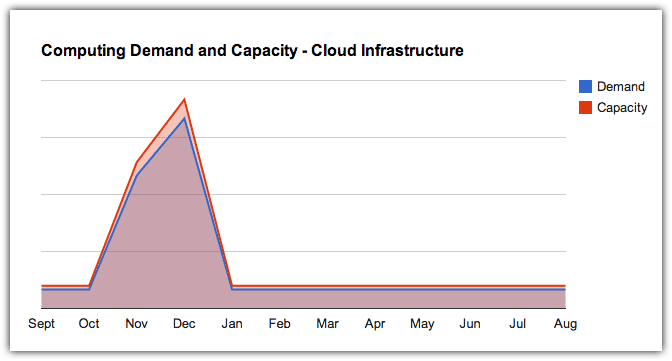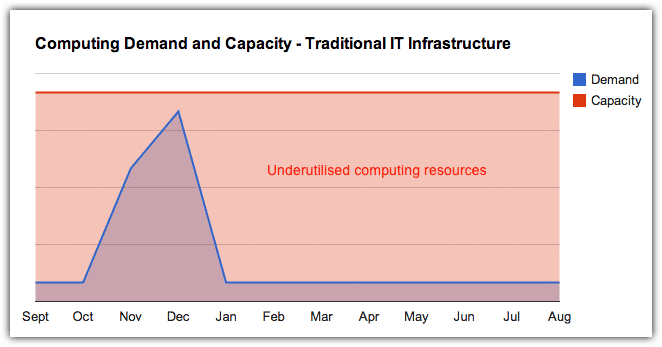The Field Service Management (FSM) Software market is growing at rates never seen before if the recent statistics are anything to go by. According to the latest estimates, the FSM market is worth $3.5 billion and is expected to hit $5.9 billion by 2024.
It’s understandable why this is happening. Technology is advancing, and we all know it’s every entrepreneur?s dream to optimise the use of the available resources while guaranteeing customer satisfaction. If technology can deliver this through automation, why not? Every business now wants to automate things, and the focus is to maximise resource output. You should, therefore, not be surprised to see the FSM software industry booming. If you just considered the field service industry, you’ll realise that there are so many software applications to help with service automation, whether full or partial.
A good example is FieldElite , which helps with the management of field workers. From your desktop or the palm of your hands, on a tablet or smartphone, you can take full control of your field workers, manage scheduled jobs, and use maps to manage work assignments for the already dispatched field workers. Not only does FieldElite help you handle tasks in an accountable manner but also provides options for accounting and reports, all managed in an easy to use dashboard.
But why would organisations need to invest in a Workforce management app? Below are some of the key benefits of using a Field Service Management software.
Field Service Software: Improves Efficiency
Improved worker efficiency is one of the main advantages of field service software like FieldElite.
Most FSM software programs allow the administrator to send tasks directly to the field worker?s mobile. More often than not, the FSM software provides vital information, including service history, optimal route to the site, the tools required, and contact numbers, among other details.
This improves efficiency by ensuring that the client’s needs are taken care of promptly. Where it’s about machine maintenance, the downtime would be as short as possible.
Field Service Software: Enhances Professionalism
FSM software programs are known for ensuring professionalism in the manner in which business activities are conducted. Of course, professionalism is attained through several factors, including working with a team of professionals. Such a team, using FSM software, results in enhanced efficiency and excellence.
A field service software like FieldElite helps you to consolidate all your business information into a single central database. With different access levels, your employees will access only as much information as is relevant to their respective duties.
An FSM software is ideal because the stored information can be accessed from any location, meaning field workers can pick new tasks while in the field, provided they’ve got the requisite tools. Instead of having to come back to the office, the employee would access all the information and execute the necessary task.
Field Service Software: Enables Resource Optimization
Resource optimization is one of the key determinants of a company?s profitability. While businesses vary in size and purpose, they all share one thing in common ? the desire to increase productivity while ensuring the optimal usage of resources.
Besides productivity, field service software also allows for efficient utilization of the available resources to cut down on costs.
Field Service Software: Ensures Better Coordination
FSM software facilitates improved coordination with the workforce. The software streamlines the management of the entire field service life cycle, ranging from labour to work orders, returns, contracts, warranties, and equipment.
The idea is to bring all the company?s field-related operations to a central point. And now, with easy data accessibility from a central platform, improved coordination is easily achievable.
Field Service Software: Guarantees Higher Accuracy
Adopting the field service management software is more than just a way to improve efficiency. It goes a long way towards improving a company?s accuracy. When a field service management software is used to trace a company?s activities, all the tasks are tracked on the mobile device, keeping the managers informed of every step.
Besides, the technicians also have a free reign to record the diagnostics, quality information, test results, and the parts consumed. All the information can be captured using text, audio, videos, and still photos. This guarantees minimal to no instances of data manipulation.
Field Service Software: Improves Customer Satisfaction
Field service management software improves customer satisfaction. How does that happen? Well, using a field service software like FieldElite allows for quick response to customer queries. If there?s one thing that quickly turns your customers off, it’s delayed response to their requests. With the field service management software, however, you can respond to such requests quickly and effortlessly.
Moreover, your customers can also track the service engineer to ensure they’re well informed of any anticipated delays. With quick response time, customer machines have more reliable uptime, which is the desire of every client.
Field Service Software: Provides Flexibility
If there?s one thing that customers like when dealing with a company, it’s flexibility. Instinctively, customers will always want different options to choose from when using a service without appearing to be confined to one provision. Having limited options would also appear boring.
To this extent, it would be wiser to adopt advanced FSM software. Advanced FSM software is compatible with mobile phones, meaning users can easily manage their tasks from isolated locations. FSM software can either be device-agnostic or device-specific. The device-specific type supports Android, Windows, and Apple iOS. This guarantees mobile-friendly tasks where users can easily manage the assignments via mobile application..
Field Service Software: Stores Client History
The mentioned software stores client history precisely. All the past data, including order history, are stored separately and accurately. In so doing, the field technician gets easy access to the tools, specifications, and technician instructions that aid them in their operations. The result is increased productivity and on-time service delivery.
Field Service Software: Enables Asset Management
Naturally, companies offering different repair services have plenty of assets to store. Accordingly, retrieving a specific part out of the large collection would be daunting.
With a field service application like FieldElite, the staff members can track down all the products effortlessly using the GPS. Furthermore, the FSM software ensures excellent maintenance of assets.
Field Service Software: Improves Oversight of Field Workers
The FSM software comes with many useful tools, including a built-in GPS tracker. The GPS tracker oversees the operations of the on-field workers, providing precise details about their geographical location, actual arrival time, and most importantly, the distance from the job site.
While this might not be useful at all times, it comes in handy when you need to assign an urgent task to the nearby technician. Call it a classic example of dynamic scheduling.
Final Thoughts
With so much at stake, it’s increasingly compelling to include the Field Service Management Software in your business. With every industry moving towards automation, your business cannot afford to lag.
Quick and efficient service delivery through FSM software may be the difference between you and your competitors.
The FSM software is no longer the cherry on the cake but a must-have tool for your survival in the highly competitive market.




